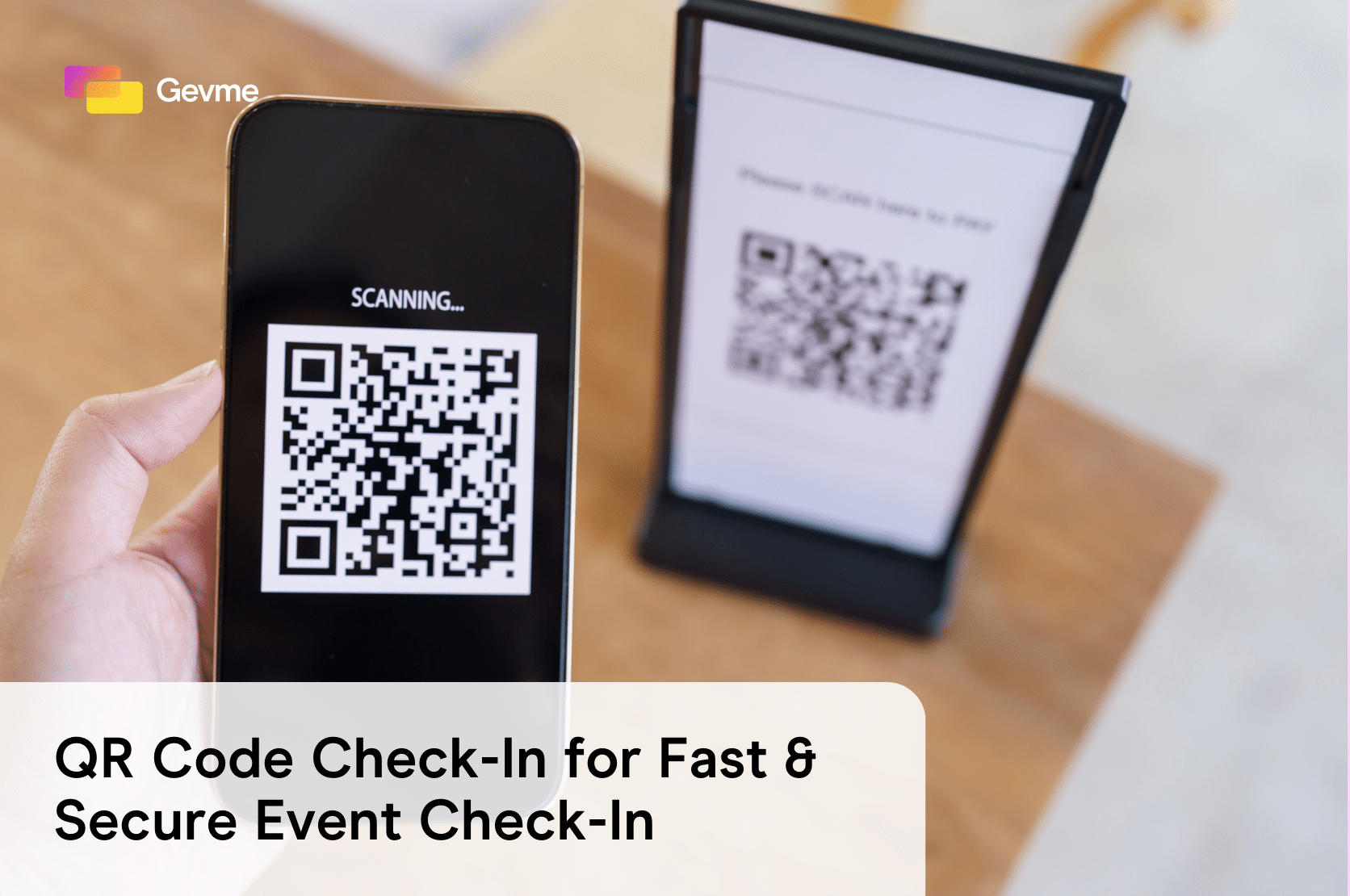Ever since the COVID-19 pandemic struck, many event organizers have chosen to pivot towards virtual events over physical ones for reasons such as public health concerns. Even as the pandemic gradually exits our daily lives, allowing physical events to be held without endangering public health, the option of online events remains attractive and trendy as ever.
How, as an event planner, can you select between both types of events and ensure you offer the best-fit option to your client?
Accessibility
The first difference between offline and online events begins with their geographic and physical limitations. Some global seminars and events may take place halfway across the world, rendering potential attendees inevitably unable to attend without spending an extensive amount of money and time.
However, incorporating an online aspect to the event allows a larger audience to enjoy the event from every corner of the world. Virtual events can also offer closed captions, translation services, and other accessibility options for those who are deaf, hard of hearing, or visually impaired. This can be a significant advantage for those who might otherwise struggle to attend an in-person event due to accessibility issues. The use of various digital tools that are suited for virtual events also boosts the attractiveness of online events, as attendees can access the services they need with convenience.
On the other hand, offline events offer the opportunity for face-to-face interactions and networking. Being able to communicate with individuals in person rather than over a virtual chat box allows attendees to build more authentic and intimate connections with others.
Such large-scale events may be able to maximise their attendance with the use of technology.
One real-life example of events maximizing their attendance with the use of technology is the annual Consumer Electronics Show (CES) held in Las Vegas. In 2021, due to the ongoing COVID-19 pandemic, the event was transformed into a fully virtual experience, allowing attendees from all around the world to participate online. The event was able to attract more than 100,000 attendees virtually, which is nearly three times the number of attendees at the physical event in 2020.

However, it’s important to keep in mind that high-speed internet or necessary devices to attend a virtual event may not be accessible to possible event attendees. Thus, organizers should consider these factors case by case when planning an event. While physical events may have a certain level of exclusivity due to accessibility limitations, virtual events can provide a more inclusive and accessible experience for a wider audience. This way, including some online aspects in offline events not only reduces its limitations but also complements it as well.
Cost
In comparison, online events seem to be more cost-effective when taken at face value. Since they do not require expenses such as venue rental, catering, or transportation like physical events, organizers may have the impression that virtual venues allow them to save more.
However, virtual events have their own set of costs. While there is no need to rent a physical venue, virtual event platforms may come with their own costs such as software, hosting, and technical support. Event organizers may also need to invest in high-quality cameras and microphones to ensure that the event runs smoothly and looks professional. Additionally, marketing efforts may need to be redirected towards online channels such as social media, email marketing, and search engine optimization.
Offline events, however, can create a more immersive experience for audiences worldwide and increases attendance. Assisted by cutting-edge technology, organizers can create memorable effects on the audience with digital tools.
As for physical events, costs can quickly add up. Venue rental, catering, transportation, lodging, and decor are just a few of the expenses that can make hosting a physical event expensive. Additionally, physical events often require in-person staff to set up, operate, and unassemble the event, increasing the cost of labour necessary. Event organizers may also need to invest in logistics and marketing materials. Attractive brochures and signages, furniture and facilities needed at the venue will add to the total cost of the event.
With careful planning and consideration, virtual events can be a cost-effective alternative to physical events, while still providing an engaging and informative experience for attendees.
Flexibility
One advantage of virtual events over physical events is the flexibility they offer to both organizers and attendees. Virtual events can be attended at any time and from any device, giving attendees the freedom to choose when and how they engage with the event content. Should they be unavailable to attend the event in real-time, they can also access pre-recordings and online materials of the event with no difficulty.

Virtual events also offer more flexibility for organizers, as they can adapt to changing circumstances and adjust the event as needed. For example, if there is a sudden change in the schedule or a speaker cancels, it is much easier to make changes to a virtual event than a physical one.
Offline events, on the other hand, offer the opportunity for real-time engagement and can create a sense of urgency and excitement. They have the On the other hand, physical events have the advantage of offering more face-to-face interaction and opportunities for networking. The physical presence of attendees and exhibitors can lead to more meaningful conversations and connections. Physical events also provide a more immersive experience, with live demonstrations and exhibits that allow attendees to interact with products and services in a more tangible way

However, physical events often require a significant amount of planning and preparation, with factors like venue, travel, and accommodation costs adding up quickly. In addition, physical events can be impacted by external factors like weather and transportation disruptions, which can significantly impact attendance and overall success.
Engagement
When it comes to engagement, physical events tend to have an advantage over virtual events. Being present in the same physical space as others create an atmosphere of excitement and energy that is difficult to replicate virtually. In-person events provide opportunities for attendees to network and make connections that could potentially lead to business partnerships or friendships. Additionally, live speakers and performers have the ability to captivate an audience and create a shared experience that virtual events may struggle to recreate.
However, virtual events have come a long way in terms of engagement. With the use of interactive technologies, such as live chat rooms and video conferencing, virtual events have the potential to foster meaningful connections and create a sense of community among attendees. Furthermore, virtual events can provide opportunities for more personalized experiences, such as virtual breakout rooms and one-on-one meetings with speakers or exhibitors.
Another advantage of virtual events is the ability to easily track engagement and collect data. With the use of analytics tools, event organizers can see which sessions and activities are most popular and use that information to improve future events. Additionally, virtual events allow for a wider reach and access to attendees who may not have been able to attend a physical event due to location or cost.
In conclusion, while physical events may have an edge when it comes to creating a memorable and engaging experience, virtual events have made significant strides in recent years and offer a unique set of advantages when it comes to engagement. Ultimately, the choice between a virtual or physical event will depend on the goals and needs of the specific event and its attendees.
Hybrid events
Hybrid events are a combination of both online and offline events to provide event attendees with the best of both worlds. With the integration of virtual spaces into physical events, attendees are able to experience a more dimensional sharing of content. Not only do these digital tools streamline the processes of the event session, it also increases the attractiveness of the event while offering the benefits of face-to-face interaction and engagement.
Hybrid events have become a popular option for event organizers who want to combine the best of both worlds: the accessibility and flexibility of virtual events and the engagement and networking opportunities of physical events. With a hybrid event, organizers can create a more inclusive and convenient experience for attendees, as they can choose to attend the event either in person or remotely. This means that attendees who may not have been able to travel to a physical event can still participate and engage with the event virtually.
First of all, hybrid events are cost-effective for organizers. By offering a virtual component to their event, organizers can reduce expenses such as venue rental, travel costs, and accommodation expenses. This allows organizers to allocate their budget to other important aspects of the event, such as marketing, content creation, and production. In addition, with the use of omnichannel services and event applications, event organizers make their content more attractive and interesting to attendees.
Another benefit of hybrid events is the ability to reach a wider audience. Attendees who cannot travel due to budget constraints, visa restrictions, or other logistical challenges can still participate in the event virtually. This not only expands the reach of the event but also increases the potential for engagement and networking opportunities.
For example, with the use of the digital and physical aspects of hybrid events to create a more personalized experience for attendees, organizers can cater to the different preferences of event attendees easily. With the ability to attend the event either in-person or virtually, attendees can customize their experience to suit their preferences and needs. For example, attendees who prefer to network and engage in person can choose to attend the physical event, while those who prefer to consume content from the comfort of their homes can attend virtually.
Finally, hybrid events offer more options for event organizers in terms of programming and content. With the ability to offer both virtual and physical sessions, organizers can provide a diverse range of content. This also allows organizers to offer a mix of live and pre-recorded content, making the event more accessible and engaging for all attendees.

In conclusion, hybrid events provide a flexible and accessible option for event organizers looking to create an inclusive and engaging experience for their attendees. With the ability to combine the benefits of virtual and physical events, hybrid events offer a unique opportunity for organizers to cater to the needs and preferences of their attendees while also providing a cost-effective and personalized experience.
Both online and offline events offer a myriad of advantages but at the same time limitations. Organizers should select the most suitable platform for the event’s content, as well as take into consideration many other aspects such as target audience group, budgeting and production cost to select the best fit. Benefitting from the services that both types of events offer is the ultimate goal.








